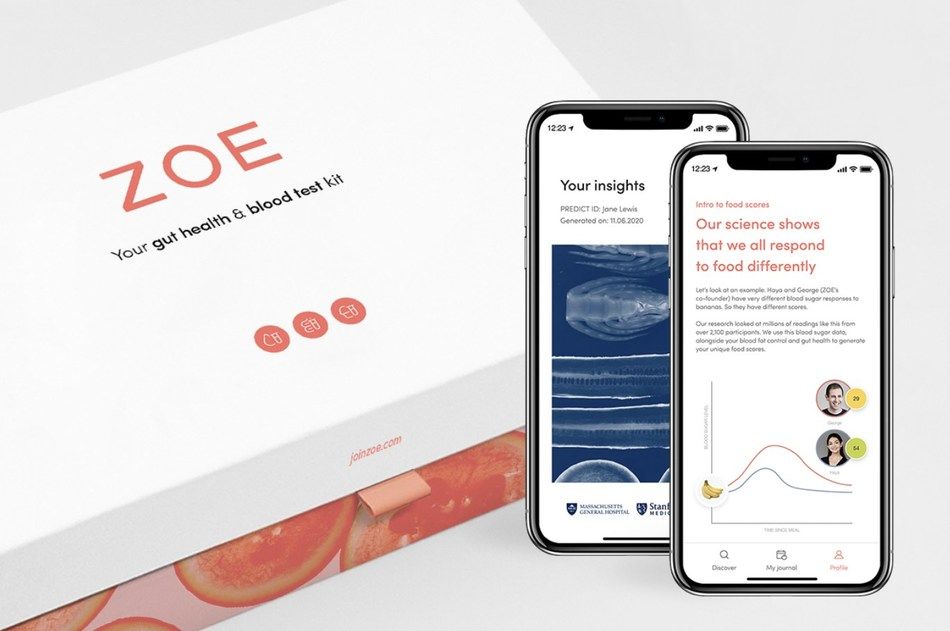A new class of startups is taking Hippocrates’ creed of letting ‘food be thy medicine’ to heart.
The functional ingredients and personalized nutrition space is heating up as consumers see the benefits of gleaning additional health and wellness benefits from their food – and investors are hunting for opportunities like never before, according to Jonathan Wolf, co-founder and CEO of personalized nutrition startup Zoe.
“We were approached by Ahren Innovation Capital, which has some fantastic science partners behind them including two Nobel Peace Prize winners,” Wolf tells AFN.
“We had not planned to raise more money because there was a lot of capital on the balance sheet, but we were excited about them and what they could bring.”
The startup — which has offices in London, UK and Boston, US — has raised $20 million in a Series B funding round led by Ahren, bringing its total funding to date to $53 million. American football stars Eli Manning and Ositadimma Umenyiora participated in the round alongside Accomplice, Transformational Healthcare Venture Capital, and Daphni.
Zoe — which means ‘life’ in Greek — offers at-home gut health, blood sugar, and blood fat tests to help consumers gain better insight into their health and wellness. Based on the results it collects, it prepares a customized dietary plan to address any sensitivities or other issues discovered through the test.
The science behind its testing kits originates with co-founder Tim Spector’s research into twins. The UK Twin Study has tracked health information for over 13,000 pairs of twins and concluded that even simultaneously-born siblings experience widely divergent health and nutrition needs, Wolf says.
“We decided […] to take that initial insight and do what has turned out to be the largest nutritional study in the world, to give us the data to be able to predict how anybody will respond to any food,” he adds.
Through these trials, Zoe claims it found that its tests provide 90% of users with more energy and80% with reduced hunger. It also claims that many users lost an average of 11 pounds during the three-month period following adoption of their personalized diet.
Zoe’s app allows users to explore meal suggestions based on their test results, while those that cough up for a premium subscription can also take advantage of one-on-one nutrition coaching. User feedback helps the app to hone its suggestions.
Although there’s a waiting list for a Zoe test kit, the new funding round will be allocated to speeding up expansion and serving more consumers – including new markets in the UK. Zoe is eyeing additional market expansions in 2022 as well.
“Despite [society] being the richest we’ve ever been, we have this host of metabolic diseases caused by the environment that we live in, which is very different from the environment in which we evolved,” Wolf says.
“People are tired of feeling tired, and they know that what they are eating is a big part of what’s causing that.”
Personalizing & commercializing wellness
Investors are showing an early interest in the personalized health and wellness space. Last year, Texan digital health startup Everlywell raised a $175 million Series D round as Covid-19 pushed consumers to prioritize their wellness and gave them the spare time at home to explore options. It added $75 million more to its war chest in January 2021. Other startups offering at-home health testing include GenoPalate, Vitagene, and many more.
In the food-focused space, Connecticut’s Project Well — which provides at-risk healthcare plan members with nutritional counseling and tailored meal plans to target chronic disease — raised a $2 million seed round earlier this year. Los Angeles-based Muniq offers a line of meal replacement shakes that are formulated with ‘wonder’ ingredients like prebiotic-resistant starch. It closed an $8.2 million Series A funding earlier this year.
So far, consumers seem keen on the idea – and undeterred by performing at-home finger pricks or stool sample collections to send through the mail.
“A lot more people want to buy the product than we are able to sell at the moment. The point is that people are motivated by really serious problems,” Wolf says.
“We have many customers in the last six months telling us that we changed their lives. I’ve never experienced that before.”





